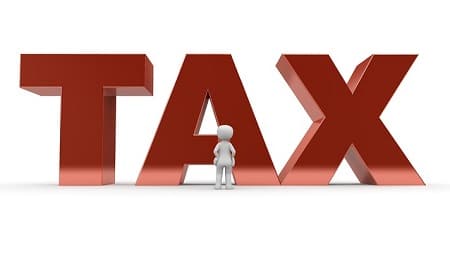
A new study, published by the parcel delivery comparison site ParcelHero, challenges Chancellor Philip Hammond’s belief that the Government can counteract the impact of prohibitive business rates on High Street retailers by introducing a new tax on e-commerce businesses to lessen their tax advantage.
High business rates are being condemned by large retailers and the Federation of Small Businesses alike; but the Chancellor is standing firm, saying they help stabilise local Government funding. Instead he told the Treasury Select Committee in July that: ‘We need to find a better way of taxing the digital economy…before considering the implications for the wider tax system.’
But ParcelHero’s new Study, The Digital Tax: To Save A Sinking Ship, Would You Torpedo Another? questions whether the real cure for plummeting High Street sales is to introduce a new digital sales tax on the one remaining successful retail sector: e-commerce. And it reveals multiplatform ‘brick and click’ stores may well end up paying excessive business rates and the new digital tax as well.
ParcelHero’s Head of Consumer Research, David Jinks MILT says: ‘Retailer’s business rates were recalculated in 2017 for the first time in seven years. Of course, some areas had shot up in rateable value. Our Study reveals that, since the change, 200,000 businesses have faced magistrates because they have been unable to pay; one in six of every commercial properties.’
Says David: ‘Commercial property taxes in the UK are now the highest in Europe. In a statement akin to Captain Smith saying the iceberg might delay the Titanic’s voyage slightly, Mr Hammond acknowledges: “The Government recognises that business rates can represent a high fixed cost of some businesses.” But his solution is not to lower or scrap business rates but instead to find a better way of taxing the digital economy, to level the playing field.’
Explains David: ‘His original, widely welcomed, idea was for a ‘Google Tax’ to ensure overseas tech giants such as Google, Facebook and Amazon pay taxes in the countries where they are earned. But the digital tax plans Chancellor Hammond outlined to the Treasury Committee in July seem to firmly have UK-based e-commerce stores in their sights as well.’
David observes: ‘Some retail organisations, such as the New West End company, suggest that a 1% sales tax on online businesses’ revenues could provide more than £5bn relief for High Street retailers’ rate bills. And the former Downing Street adviser MP Neil O’Brien proposes an even-steeper 3% online sales tax. But the High Street’s concerns are far from being a one-way street: online limited companies already pay corporation tax at 19% and VAT at 20%; they may also be paying their own business rates on warehousing and offices. And there are costs e-commerce businesses face that established High Street stores don’t: online retailers generally have significantly larger technology investment and delivery and returns charges, for example.’
And David reveals the new Study finds the digital tax may well hit many businesses already paying the highest Business Rates, such as John Lewis. ‘The most successful retail businesses today have a mix of physical stores and e-commerce sales. Multiplatform sales are the key to a successful modern retail business. It seems likely a new digital sales tax would apply to online sales for businesses with High Street stores, as well as pureplay online retailers. In which case large stores weathering the Business Rates storm could be hit by even more taxes.’
And the Study reveals efforts to tax overseas e-commerce giants have not yet solved the problem, which means the new plans will directly hit UK-based web stores but not overseas multinationals. Says David: ‘By trying to balance the playing field between High Street and web stores, the Chancellor is in danger of introducing a new unfair advantage for overseas e-commerce giants over UK-based web stores.’
David concludes: ‘Whatever the shape of a new digital duty, whether it’s a sales tax or an attempt to tax the value of user-created content – another idea the Chancellor has thrown into the mix – ParcelHero is asking is now the right time to launch significant changes? Just as Brexit plans seem likely to impose new costs on digital businesses. The answer shouldn’t overtax the Chancellor unduly: it’s simply to reduce excessive High Street Business Rates.’
